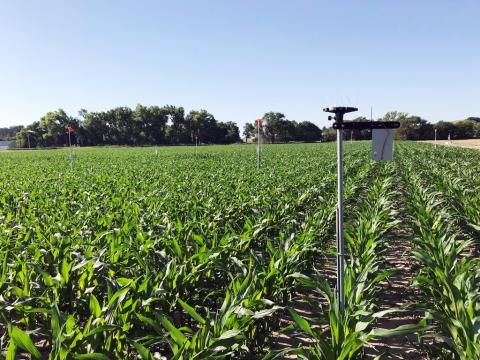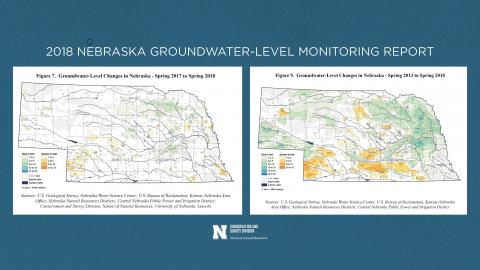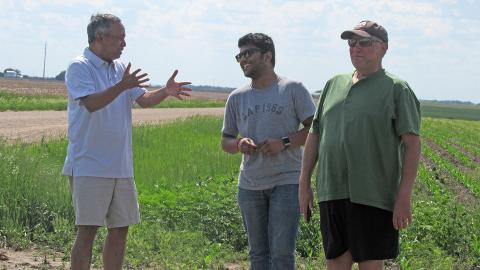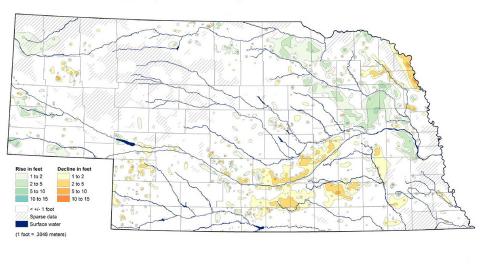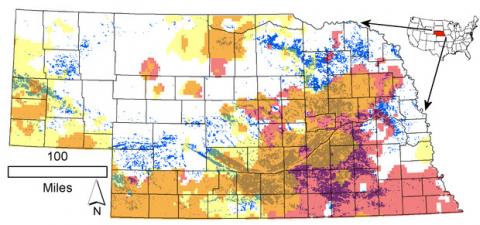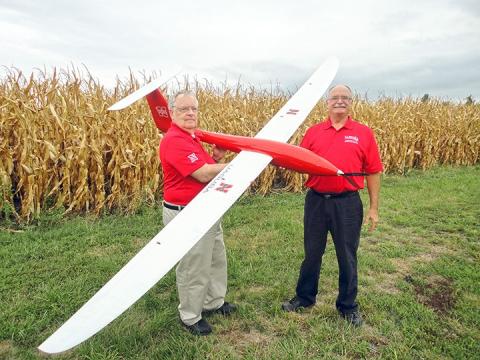Researchers to Tackle Irrigation Decision-making with Help of USDA grant
October 30, 2019
A new federally funded, multi-state research project aims to bridge the gap between data-collection in the field, modeling, and decision-making so crop producers can more easily decide whether to irrigate. The project could help growers save financial and water resources.
Groundwater Levels Recovering from 2012 Drought
March 28, 2019
Nebraska groundwater levels generally continued to rise in the areas most affected by the 2012 drought, although there were exceptions, according to the 2018 Nebraska Groundwater-Level Monitoring Report.
Husker-led Research Team to Examine Irrigation's Role in Precipitation
July 16, 2018
A national team led by the University of Nebraska–Lincoln is studying potential links among irrigation, cloud formation and rainfall from a 3,600-square-mile region in southeastern Nebraska.
Nebraska Continues To See Modest Groundwater Decline
March 15, 2018
Based on tests in 5,200 water wells across the state, Nebraska has seen a modest decline in groundwater levels in the last five years. A new university report tracks well levels in 1-year, 5-year, 10-year, and pre-irrigation increments to identify trends.
Research Shows Large-Scale Irrigation Reduces Local Precipitation
February 28, 2018
A University of Nebraska-Lincoln researcher has shown that widespread irrigation has resulted in a net moisture loss in Nebraska, a finding that could have worldwide water conservation implications if substantiated by further research.
High Plains Climate Center a Hub of Weather Data for 30 Years
December 11, 2017
The High Plains Regional Climate Center quietly turned 30 this year, while it continued to collect and make available a host of climate data, organized and taught numerous climate training workshops and answered hundreds of consumer calls.
The center didn’t pause to celebrate.
Nebraska State Climate Office Launches Websites
September 21, 2016
The Nebraska State Climate Office has launched two new sites offering weather data (current and historical) and more reporting locations and for some, hourly updates.
UNL Professor Recognized for Resources on Unmanned Aerial Systems for Ag
August 17, 2016
UNL Professor Wayne Woldt looks at opportunities for using unmanned aircraft in agriculture and receives the Presidential Citation from the American Society of Agricultural and Biological Engineering. The series looks at UAS (drones) and their potential uses in agriculture, as well as challenges, rules and regulations.

